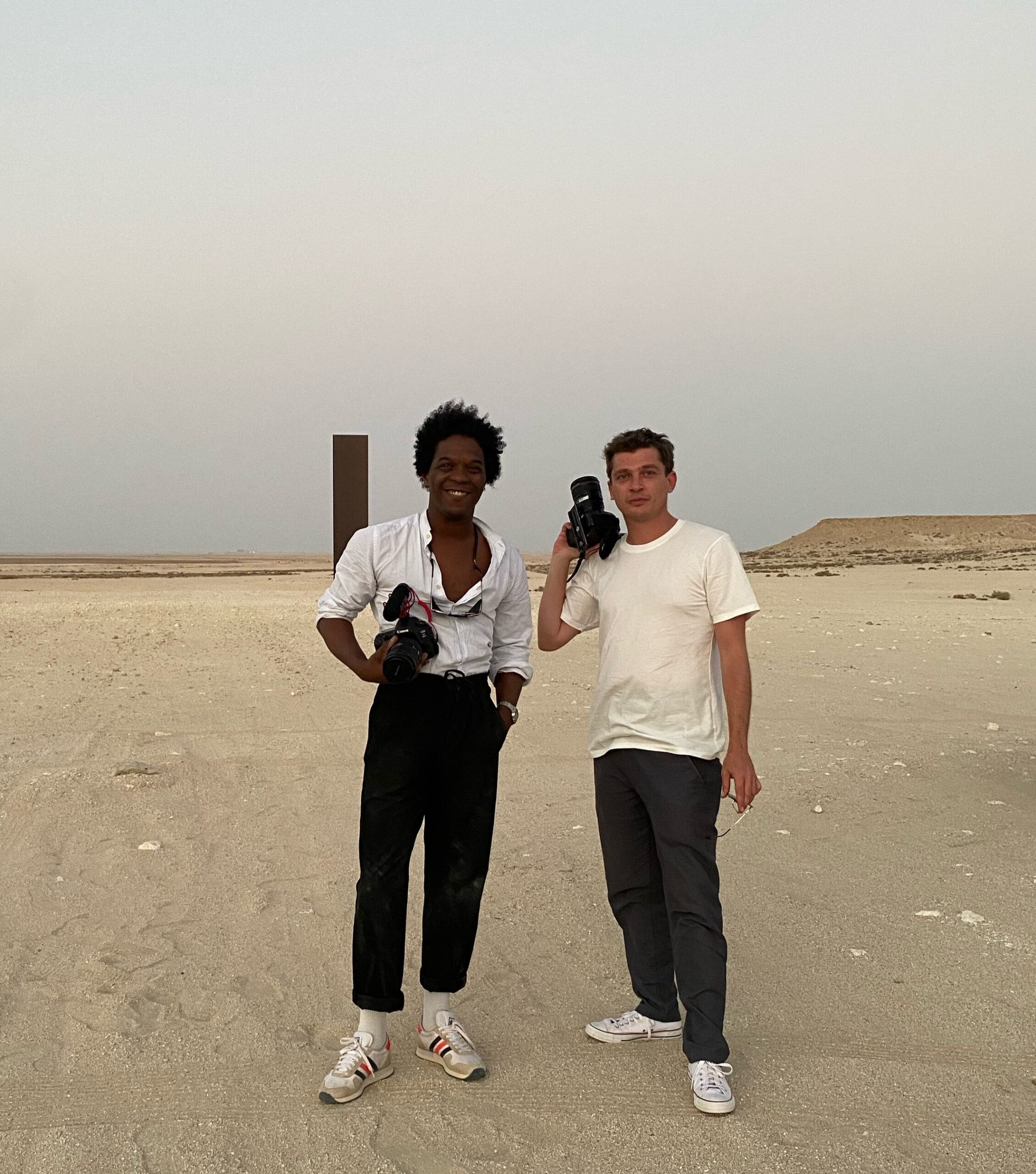Christophe Chassol & Boris Memmi
Musician, composer, filmmaker / Filmmaker, producer, manager

- Audiovisual
- Music
- Chicago
“It is in Chicago, more particularly the South-Side, where we can find the relevant people to speak with, the places to visit, the actors, musicians, culture and history which we require so as to study the beauty of Ebonics (ebony & phonics), the African-American slang English, the manner in which it uses neologisms and the social issues it raises when it is promoted or cancelled.”
At the core of our profession lies musical composition in a variety of forms—albums, concerts, performances, films scores—but our work mainly revolves around video and audio capture. We have been functioning as a duo—a composer/musician/filmmaker and a producer/filmmaker—for several years now, creating musical documentaries that we then stage as concerts and perform across the globe.
We also write music for film and television, and have been hosting a TV music program, Arte’s Ground Control, since October 2021.
In 2023, we produced two new creations: Chassol Plays Basquiat at the Paris Philharmony, which later aired on Arte, and the concert/exhibition Les Marguerites, in partnership with Gaumont.
Christophe Chassol is a French composer, filmmaker, and musician who uses unique composition techniques. He has created genre-breaking albums/films/performances, which he calls “Ultrascores,” a series of musical journeys—to the U.S. with “Nola Chérie,” India with “Indiamore,” Martinique with “Big Sun,” and Japan with “Ludi,” his latest film, which was loosely inspired by Hermann Hesse’s “The Glass Bead Game.”
Boris Memmi is a filmmaker and co-producer. As Christophe Chassol’s manager and tour manager, Memmi assists the composer in all aspects of his creations, documenting each stage of his research in order to tease out the audiovisual substance of his compositions.
Villa Albertine’s residency will give us the opportunity to study stand-up as a form of prosodic art and thus continue our research regarding the musicality of speech. The aim is to meet and exchange with comedians, to interview them, to study and record their performances so that we can then identify each individual note of the melodies resulting from each individual syllable of their flow. We would then harmonize all the notes and use them to create a score which would then be sung by a choir (Radio France).
I have called these works “Ultrascores”: they are audiovisual pieces, the music of which has been created using the sounds existing in the images which have been shot. My work as a composer of music for films has hugely contributed to these creations which have used birdsong, prose, field recordings, tangible sounds, different languages and lands. My filming technique combines documentary, staging and even animation.
The research that we will carry out at Villa Albertine is based our my deep-rooted love of stand-up, rap and musicals as well as our burning desire to see and hear the flows of African American comedians sung with searing precision by a choir. A a view to creating something new.
Stand-up is deeply rooted in the United States. It is an art form which has changed very little since it first started in the beginning of the 19th century. The fact that it is now able to compete on streaming platforms with super productions, animations and big-budget television series despite only needing a comedian, a microphone and a stage, is testament to how powerful and relevant it has become whether as regards its poetry, its musicality, its rhetoric, its social and political standing or its cathartic nature.
We would like to study African American prose as it relates to rap, as well as Ebonics (ebony & phonics), the African-American slang English or “Black English”Ebonics (ebony & phonics), the African-American slang English or “Black English”. It is in Chicago, more particularly the South-Side, where we can find the relevant people to speak with, the places to visit, the actors, musicians, culture and history which we require so as to study the beauty of the way this language swings, the manner in which it uses neologisms and the social issues it raises when it is promoted or cancelled.
In addition, for me personally, Chicago is a kind of musical Holy Grail I have rarely found elsewhere. In my opinion, Minnie Ripperton’s album “Come to my garden” is the height of avant-garde orchestral soul produced, composed and arranged by one of my idols, Charles Stepney: born in the South Side and head of the Chess Records music label and cult group, Rotary Connection. Stepney’s popular and knowledgeable arrangements, like stand-up, could only have been written in Chicago with the “best orchestra in the world”, the Chicago Symphony orchestra. I would like to do a deeper dive to understand these sounds by meeting with the heirs of this cross-over (popular + knowledgeable) and introducing them to my method.
In partnership with

Radio France
Radio France, France’s leading radio group has started writing its story with podcasting since 2005: a company designed around and for audio in tune with the times and in tune with users. Radio France has been a pioneer in podcasting and is now the leading producer of podcasts in France. In 2022, its podcasts reached an unprecedented number of listenings, exceeding the one billion mark – a number twice as high as in 2017 -. Its abundant catalogue of over 1.5 million podcasts, available free of charge on its mobile application, is both the digital continuity of its radio stations and a space of great freedom, creativity and innovation in sound. The development of podcasts thus constitutes an additional space for the emergence of new talents, which Radio France has been supporting for several years: artists, authors, musicians and actors who are participating in the renewal of the audio formats and sound writings that will shape the radio of tomorrow.
